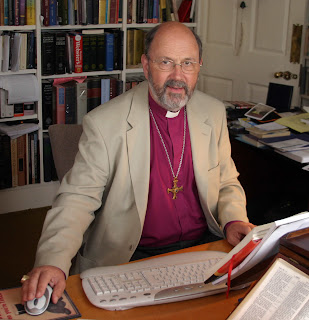31 March 2011
06 October 2010
NT Wright/Andy Crouch/Rob Bell at Duke Divinity School

Friday, Oct 8 | 3:30-5
Goodson Chapel
Revelation and Christian Hope: Political Implications of the Revelation to John
(with C. Kavin Rowe)
Monday, Oct 11 | 11-12:30; 2-3
Page Auditorium
Tradition, Innovation, and the Church

Tuesday, Oct 12 | 9-10:30
Tuesday, Oct 12 | 2-3:15
27 September 2010
review: Megafaun/Fight the Big Bull/Sharon van Etten/Justin Vernon live @ Hayti Heritage Center
We settled into the back pew of Saint Joseph’s AME Zion on a Friday night quite aware that we were in what used to be used as explicitly sacred space. What I’m not sure we immediately realized, but understood soon enough was that we were there for some sort of revival.
15 September 2010
jamming: Megafaun, Justin Vernon, Sharon Van Etten, & Fight the Big Bull live @ Hayti Heritage Center
30 August 2010
05 July 2010
processing: Summer 2010 Reading (I)
Anyone looking for some sort of positive assessment of the messy tangle encountering evangelical(-ish) church-life to come, should pick this one up. Belcher offers an accessible and erudite survey of the landscape and painstakingly critiques and offers a way forward (which he, following CS Lewis coins the deep church). This "third way," for him, is rarely a synthesis of the other two poles, though Belcher possesses all the charity, skill, and machinery to form such syntheses. Belcher instead looks and, more often than not, finds a true new way. This way of Orthodoxy and Engagement, truth and warmth, set-apartness and engagement must be the way forward and the type of leaders needed for such a grand endeavor must be committed to ecumenism, creativity, and generosity. I thoroughly enjoyed this book. It accurately mapped and widely conversed un order to generate a gravitational vision around the Triune God in community. Well done.
20 April 2010
preaching: Re-imagining the E-Word: Confession, Cost, & Community (Ps 32)
12 April 2010
Ethics & Baseball.
09 April 2010
Sympathy for the Devils
08 April 2010
Johnny Cash: The Revelator
When The Man Comes Around J.R. Cash (American/Lost Highway/Columbia 2002) Spoken: And I heard, as it were, the noise of thunder: One of the four beasts saying: "Come and see." And I saw. And behold, a white horse. There's a man goin' 'round takin' names. An' he decides who to free and who to blame. Everybody won't be treated all the same. There'll be a golden ladder reaching down. When the man comes around. The hairs on your arm will stand up. At the terror in each sip and in each sup. For you partake of that last offered cup, Or disappear into the potter's ground. When the man comes around. Hear the trumpets, hear the pipers. One hundred million angels singin'. Multitudes are marching to the big kettle drum. Voices callin', voices cryin'. Some are born an' some are dyin'. It's Alpha's and Omega's Kingdom come. And the whirlwind is in the thorn tree. The virgins are all trimming their wicks. The whirlwind is in the thorn tree. It's hard for thee to kick against the pricks. Till Armageddon, no Shalam, no Shalom. Then the father hen will call his chickens home. The wise men will bow down before the throne. And at his feet they'll cast their golden crown. When the man comes around. Whoever is unjust, let him be unjust still. Whoever is righteous, let him be righteous still. Whoever is filthy, let him be filthy still. Listen to the words long written down, When the man comes around. In measured hundred-weight and penny-pound. When the man comes around. Spoken: And I heard a voice in the midst of the four beasts, And I looked and behold: a pale horse. And his name, that sat on him, was Death. And Hell followed with him. | Revelation 6:1-2a “There's a man going 'round taking names (taking names)/He's been taking my fathers name/an' he left my heart in vain/there's a man going 'round taking names” (Leadbelly) Gen 28:12 Jn 1:51 Mt 27:7 Also: Mt 27:9; Jer 19 Mt 24:31 Also: Rev 1:10; 4:1; 8:13 Rev 1:8, 21:6, 22:13 Job 38-40 Mt 25:1-13 Paul’s conversion in Acts 26 Rev 22:11 Rev 16:16 Lk 13:34 Rev 4:10/Rev 7:15/Mt 2:7-12 Rev 4:10 Rev 6:6 Revelation 6:6a, 8 |
07 April 2010
screening: Spoken Word, Preaching Visuals, & Prophetic Jesterdom
Spoken word poetry as embodying and unleashing the Word.
Using visual media to deliver and enhance the message.
06 April 2010
preaching: The Shape & Sound of Resurrection (Mal 4)
Here is my second sermon for preaching class. My first sermon started Lent, this one concludes Lent and anticipates Easter. I went for it a little by using music (the Welcome Wagon's rendition of the preaching text). I also tried to improve my delivery, there's still much work to be done. I had fun with this one. Let me know what worked and what can be improved, I'd love feedback...
05 April 2010
Congrats Duke!
25 March 2010
"Forgiveness is the Final Form of Love."
11 March 2010
Confession: of Light, Mirrors, Basins & Towels
Visit the original post at allgather.org.
22 February 2010
preaching: To Be A Good Note-taker (Rev 10)

04 February 2010
processing: Preaching, Praying & Paying Attention

13 January 2010
processing: Preaching Class Day 1
13 October 2009
American Christianity Notebook Reflection

Throughout my notes, the Bible repeatedly availed itself as perhaps the most controversial and duplicitously used document in the history of our country. By recounting the showdown between staunch slaveholders and ardent abolitionists, based heartily on opposing interpretations of the Bible, that I become aware of my own blind spots for the Gospel’s implications for race and justice here and now. In viewing images of exalted printing presses, I become aware of my confusion between media and message, and my tendency to elevate what I read on a page above the active work of a living God. Far from suggesting that Scripture lacks authority or importance, it has instead become all the more pressing for that crucial authority and utmost significance to be rightly received. God has certainly revealed my own myopic tendencies in the American Church’s (in all its varieties) historical array of ungainly biblical interpretation.
As I leaf through, I hold fast to what these questionable biblical hermeneutics of yore have to bear on my life, but I still catch myself throwing stones from my glass house of piety. I consistently question the purity of these Christians’ motives. As Separatists themselves, how could the Puritans be so quick to alienate opposing Christians in New England? Why did democratization of the State and Church mirror each other so closely during the Great Awakening, despite their functional separation? How does the Church forget its own lessons of caution so fast? Sitting in this class and paging through the notes, echoes, to some extent, my study and devotional reading of Israel’s salvation history in the Old Testament. No matter how many times I read and recognize my ancestors’ failings, and marvel at their enduring ability to veer toward unfaith and perversion, at some level I too own that tendency. As Cotton Mather defined it, “History is a story of events, with praise and blame.” Instead of seeing these as merely unforgivable gaffs or disembodied events, I am learning to critically (and self-critically) engage American Christianity’s history as a narrative of my own triumphs and collapses, writ large.
11 September 2009
praying: Virtues of Fear & Hate
 God of Light,
God of Light, 
























